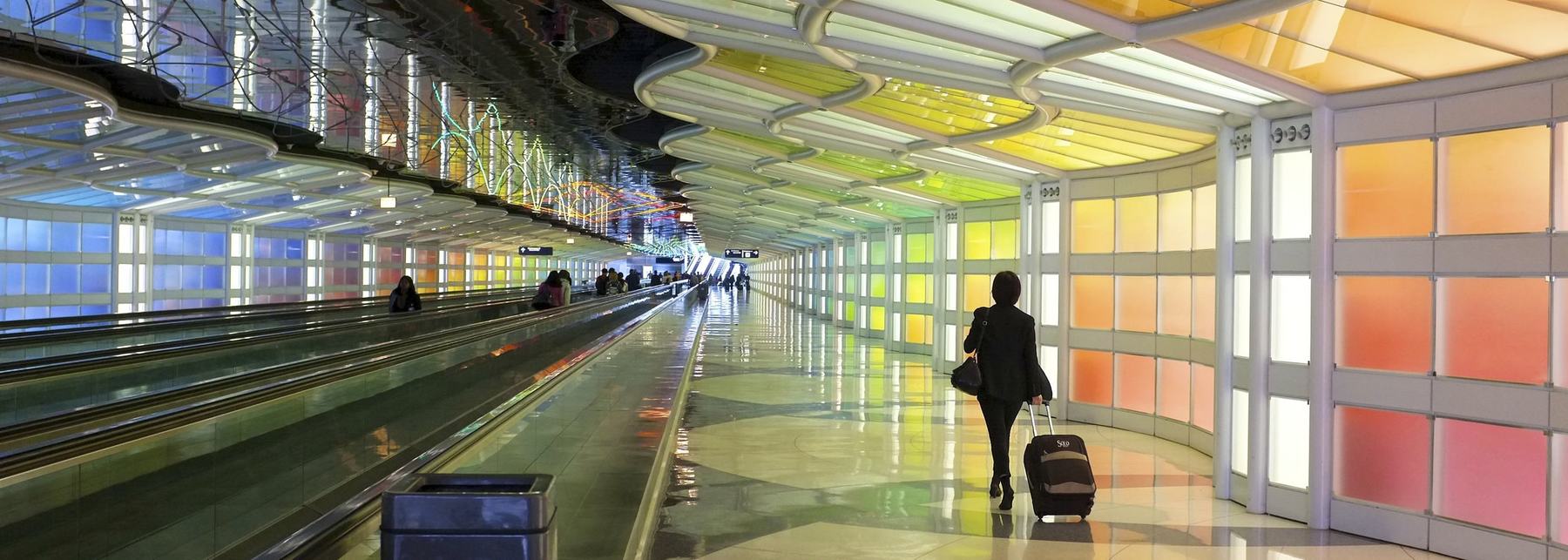
The 7 Habits Of Highly Experienced Air Travelers
Lots of people think of themselves as highly experienced air travelers. Perhaps you’re one of them.
But it’s a difficult thing to measure objectively. What makes an experienced air traveler? Time spent abroad? Number of countries visited? Air miles? Buffet breakfasts consumed?
Or should it be more like friendships formed, languages learnt, postcards sent?
The answer is that it’s all of these things – and more – but for today’s post, we’re going to focus on the useful tactics, routines and habits that you can use yourself.
How To Be An Experienced Air Traveler
It doesn’t take much to quickly be seen by friends and colleagues as a travel pro. Here we’ve chosen tips that you can easily replicate when you next fly.
1. They never check in at the airport
There’s a great scene in the movie Up in the Air when Ryan Bingham (George Clooney), a seasoned air traveler, is rolling his eyes at his young colleague’s oversized luggage at check in.
Ryan Bingham: You know how much time you lose by checking in?
Natalie Keener: I don’t know. Five, ten minutes?
Ryan Bingham: 35 minutes a flight. I travel 270 days a year. That’s 157 hours. That makes seven days. You’re willing to throw away an entire week on that?
Only rookies do this. There’s no upside. You should check in and claim your seat online as soon as it becomes available. This also protects you from getting bumped on an overbooked flight.
2. They have a favorite airline
Regular business travelers know how to play the game. They pick their favorite airline, sign up for the alliance’s frequent flyer program and always book with that airline if possible, even if it’s not always the cheapest fare. They commit to getting premier status and revel in the significant perks. “You should maximize the amenities,” says Airport Planner Annie Lindseth. “A frequent flier number is essential, but you may also want to consider credit cards that provide airline points. Many of these cards provide airport lounge access, free checked bags, and other convenient features. Here’s a Forbes review of the best airline miles credit cards if you need to compare available offers.”
3. They never check essential belongings
Keys. Money. Jewelry. Electronics. Medication. You only need to lose a checked bag once to learn this the hard way. If you can’t go a day without it, or if it’s a sentimental item and irreplaceable, it doesn’t get checked.
4. They breeze through security
You don’t see experienced air travelers struggling with belts, coins and keys when they go through security. Instead, they put all their fiddly belongings, including cell phones, wallets and jewelry inside a bag, purse, carry-on, jacket – whatever – until they’ve passed through security.
5. They board as soon as they can
If you leave it late to board on a busy fight, there might not be room for your bag in the overhead luggage. This means your bag’s going to sit at your feet for the duration of the flight. Why chance this? There’s an exception: if you’ve checked in with an aisle seat and don’t have any luggage with you, you can board the plane last. Experienced air travelers tend to opt for aisle seats: “You don’t have to hop over anyone to use the restroom and you can stretch out your legs in the aisle to get a good sleep. Yes, you might get clobbered a few times during meal and drink service, but it’s SO worth it,” says Nelson Wang, founder of CEOLifestyle.io.
6. They travel with lifesaver items
What are lifesaver items? A water bottle, a snack bar, sleep mask and earplugs, a universal adapter, battery pack and compression socks for flights longer than five hours. If you’re flying long-haul, hydration is very important. As Layla Shaikley, the cofounder of TedXBaghdad and software company Wise Systems points out on Quora, “Between 30-64% air humidity is what’s recommended for comfort, but airplanes can be beneath 10%. Natural moisture in your skin and body evaporates.”
7. They know how to get rid of jet lag
This is a biggie because jet lag is a productivity killer. Some people swear by not eating on the plane and then adjusting to a new time zone by feasting at the next mealtime once they land. Others by going for a barefooted walk outside to ‘ground’ their body with the earth (not always convenient). And then there’s the folks for whom a stiff drink and some chewable melatonin hits the reset button. The key is to find out what works for you.
Flight delays happen, but that doesn’t mean you have to accept them. You may be entitled to as much as $680 in compensation if your flight was delayed, canceled or overbooked within the last three years.
Image: Nick Harris
85% of passengers don't know their rights. Don't be one of them.
AirHelp has been featured in:



